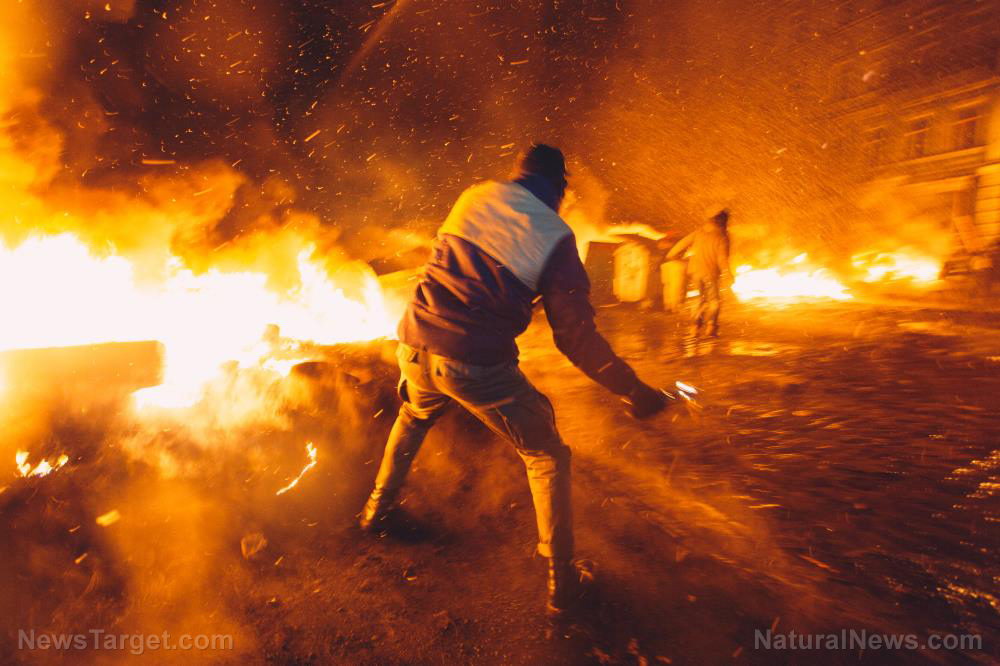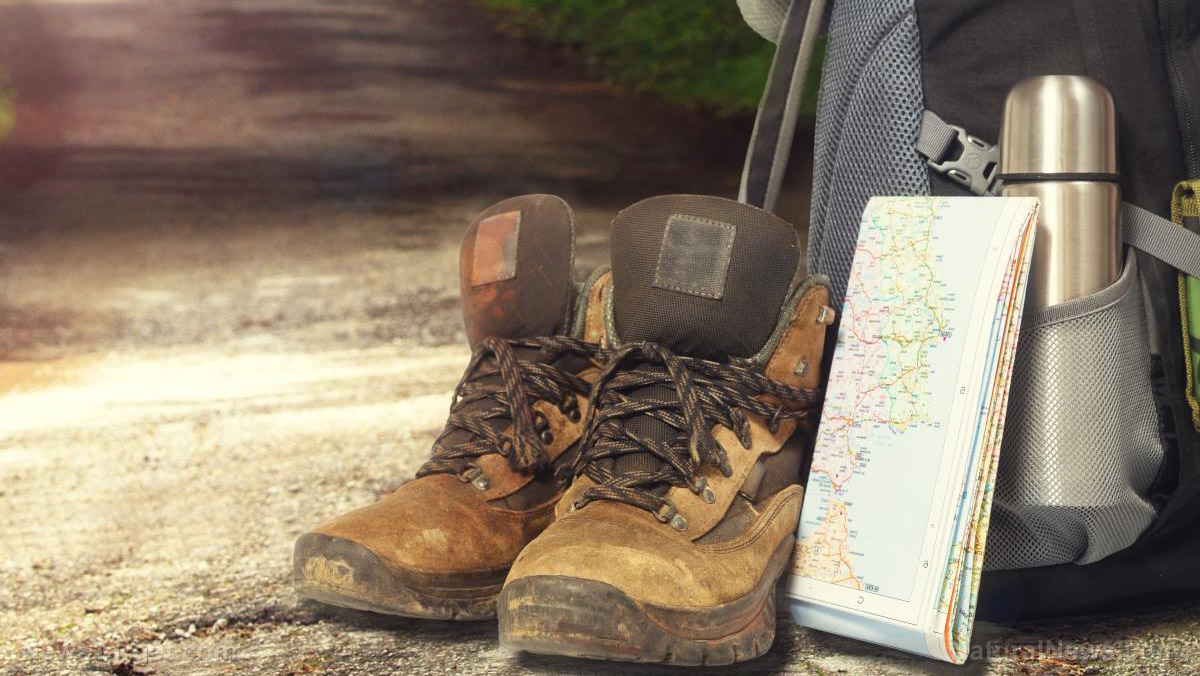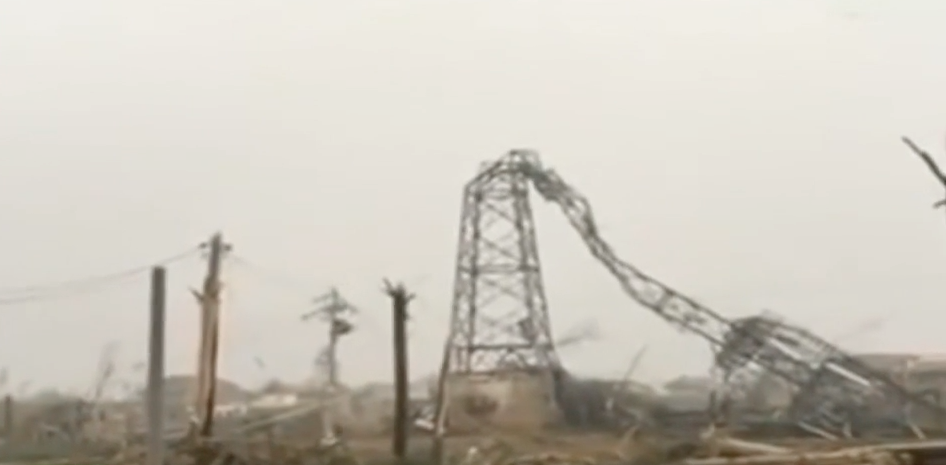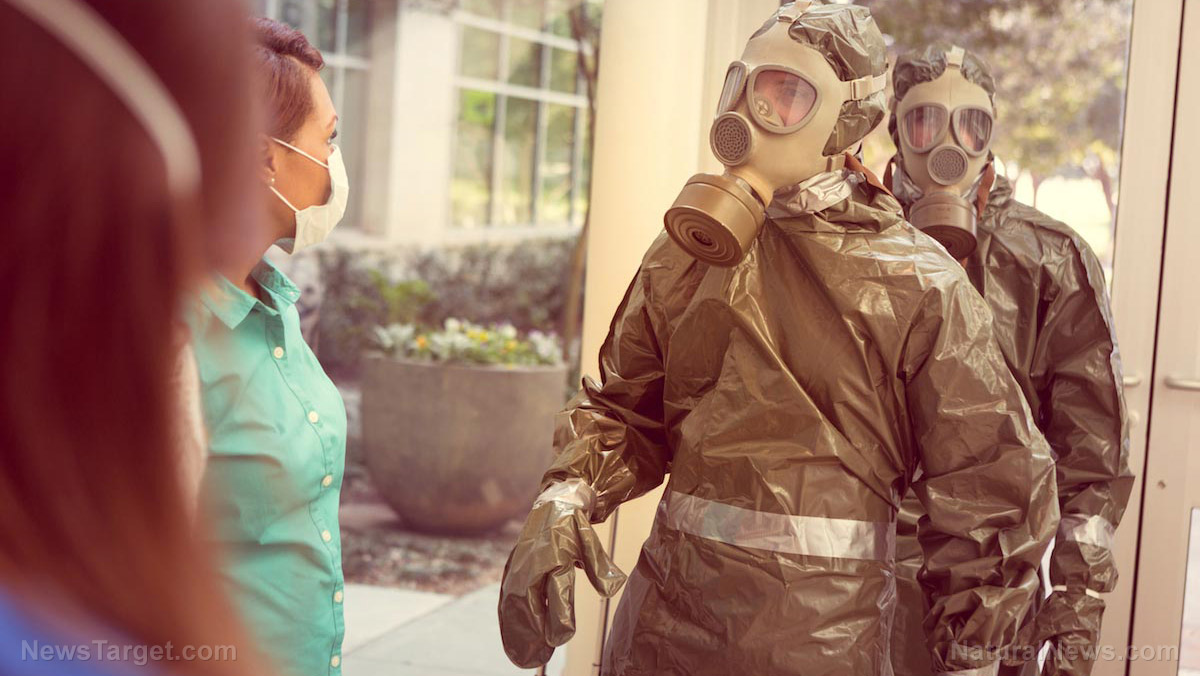During SHTF situations, the worst thing you can do is hesitate
12/03/2018 / By RJ Jhonson

It takes more than stockpiling food, equipment, and other resources to survive SHTF situations – you need to train your mind, too. In an emergency situation where immediate action is a matter of life and death, the slightest bit of hesitation could be the blow that derails even your best-laid plans for survival.
People respond to various situations differently. In times of crisis, many people go through a process of denial called cognitive dissonance. This typically comes in several phases:
- The Denial phase is when people do not or cannot accept what is happening.
- In the Delay phase, they go through mundane activities unrelated to survival to extend their concept of normalcy. These include tidying up or gathering their belongings methodically.
- In Diagnosis, people begin to assess their situation, usually by paying more attention to inputs from their senses.
- Acceptance is when people finally accept that they are in a crisis.
- Consideration is when people evaluate the best course of action. Some are overwhelmed and freeze as a result.
- In the Action phase, people have decided on a course of action. This is when they decide to fight back, run away, or help other people.
This was best exemplified in the stories of survivors of the 9/11 disaster. Some narrated how they froze when the incident occurred, while others turned to gather documents and personal belongings before finally proceeding to the stairwells. While these people survived to tell their tale despite their hesitation, it’s possible that many others died because they failed to act on their predicament.
Improving your reaction to a crisis
In the military, soldiers are trained to assess their situation and select a course of action quickly. They don’t just move fast, they also do not waste time when making decisions that will potentially save their life and that of others. Soldiers do not just train their body, they also train their mind. (Related: Bushcraft survival skills to teach your kids or grandkids.)
You can improve your mental response to crises by following these steps:
- Run scenarios – Imagine yourself in a crisis situation and train your brain to look for options and solutions, as well as their pros and cons. You can even do this with your family so that you are all learning and planning together.
- Be aware – Learning about everything that happens in your environment lets you prepare for possible emergencies. For instance, if you hear from the news about the rising incidence of burglaries, you can be better prepared for when such a crime happens in your home.
- Pay attention to your surroundings – If you are too focused on your phone, you may not realize that an emergency is happening in your surroundings. Be aware of your surroundings at all times to ensure that you can react promptly and as needed.
- Block out distractions – In practicing scenarios, you might want to add distractions. This will simulate real-world environments where visibility and other conditions aren’t always optimal. The approach will also improve your ability to focus.
Needless to say, a well-trained mind can only do so much in a body that is ill-equipped for survival in the first place. If you want to beat hesitation, you will need to enhance your reflexes, much like how athletes train their body to automatically perform certain actions. Here are steps to improve your reflexes and reaction time:
- Take time to exercise – You will need to allot a segment of your time daily to perform one form of physical exercise of another. If you are at the office, you can use your break time to run, hike, go to the gym, or do something as simple as tossing around a ball.
- Learn martial arts – Whether it’s boxing, krav maga, or any other technique, martial arts are a great exercise that trains your body to react quickly, efficiently, and effectively.
- Practice your balance – You can do this by doing something as simple as walking on the curbs of the street as kids often do, climbing, or doing yoga poses.
- Do cardio – A cardio improves your endurance, ensuring that you don’t get tired from just a bit of running during an emergency.
- Rinse and repeat – Practicing over and over will develop your muscle memory, letting you respond a certain way automatically without much thought.
Boost your odds of survival with tips from Survival.news.
Sources include:
Tagged Under: cognitive dissonance, crisis, exercise, hesitation, martial arts, Off-the-grid living, preparedness, prepping, SHTF, survival, survival skills, surviving crises



















